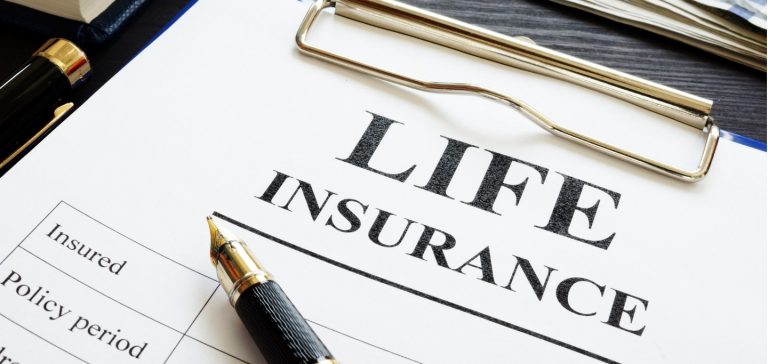Why Everyone Needs Home Insurance: Exploring The Benefits And Risks
Home Insurance – Owning a home is a significant investment, highlighting the importance of having comprehensive protection. Unfortunately, many homeowners mistakenly believe they can do without insurance, unknowingly exposing themselves to various risks.
The absence of home insurance can lead to severe financial setbacks caused by unforeseen events such as natural disasters, theft, or liability claims.
One of the primary risks of not having home insurance is the potential for significant financial losses resulting from property damage or destruction.
Imagine a fire engulfing your home, causing extensive structural damage and destroying your personal belongings.
The expenses of rebuilding or repairing the residence and replacing lost possessions can be overwhelming, creating a massive financial burden.
Another risk of forgoing home insurance relates to liability claims. If an injury occurs on your property, you might be held responsible for medical expenses, lost income, and other liabilities.
Without insurance, you could be forced to cover these costs out of your pocket, potentially leading to financial ruin.
Lastly, the absence of home insurance could hinder your ability to secure a mortgage. Most lenders require insurance as a prerequisite to protect their investment in the property. Obtaining a loan for home acquisition or refinancing can be accessible with insurance.
In essence, lacking home insurance can pave the way for financial ruin in the face of unexpected events. Safeguarding your investment and personal security requires obtaining comprehensive insurance coverage.
Advantages of Home Insurance
Protecting Property and Possessions
One of the primary benefits of home insurance is the protection it provides for your property and possessions.
Typically, these policies include coverage for property damage, encompassing both the structure of the dwelling and personal belongings such as furniture, appliances, and electronics. This coverage is crucial in unexpected incidents like fires, floods, or storms.
In addition to safeguarding property and possessions, home insurance often covers the costs of alternate living arrangements when your residence becomes uninhabitable due to damage or destruction.
This provision ensures that you and your family have a secure place to stay during repairs or rebuilding.
Another advantage of home insurance is its ability to offset repairing or replacing damaged property costs. For example, your insurance may cover repairing the damages if a tree falls on your home during a storm.
This financial relief eases the burden of sudden repair costs, ensuring the restoration of your home to its pre-damage state.
Ultimately, home insurance provides peace of mind by shielding your property and possessions against unforeseen predicaments. It is an essential investment that acts as a safeguard against financial ruin.
Liability Coverage
In addition to property protection, home insurance includes liability coverage, a critical asset in case someone sustains injuries on your premises and files a lawsuit for damages.
Liability coverage typically encompasses legal fees and the expenses associated with any court-determined liabilities.
If an individual slips and gets injured on your property, the coverage could include their medical bills, lost income, and other damages. Importantly, liability coverage comes with predefined limits.
If the damages exceed your policy’s limit, you might be required to cover the excess expenses yourself. Therefore, selecting a policy with sufficient liability coverage is essential.
In summary, liability coverage is a fundamental benefit of home insurance, as it mitigates the risk of financial upheaval if someone gets injured on your property and decides to take legal action.
Types of Home Insurance Policies
Various home insurance policies are available, each offering distinct coverage options. Prominent categories of these policies include:
- HO-1: This policy provides elemental fire, lightning, and hail coverage.
- HO-2: This policy expands the scope to include a broader range of events, including theft and vandalism.
- HO-3: The most common approach covers damage from all events except those specified as exceptions in the policy.
- HO-4: Designed for renters, this policy addresses personal belongings and liability, excluding structural coverage.
- HO-5: A comprehensive policy that covers both structural and emotional belongings damage.
- HO-6: Tailored for condominium owners, this policy offers a range aligned with the ownership structure.
- HO-7: This policy targets mobile homes.
- HO-8: Specifically designed for older homes, it adapts to buildings not complying with current building codes.
Selecting the right home insurance policy should be based on the level of coverage you need. Factors such as your home’s age, condition, personal belongings’ value, and risk tolerance should influence your choice.
Choosing the Right Home Insurance Policy
Selecting the most suitable home insurance policy may seem daunting, but several essential factors can help you make an informed decision.
Firstly, assess the extent of coverage you require. Do you need comprehensive protection for your property and personal possessions, or is essential coverage for specific events sufficient?
The budget also plays a significant role. What is the upper limit of your monthly premium affordability?
Additionally, consider the insurance company’s reputation and financial stability. Opt for a company with a solid financial rating and excellent customer service track record.
Continuously reassess your policy and update it as needed. Significant changes to your residence or belongings might prompt adjustments to ensure adequate coverage.
Home Insurance Claims: Managing Emergencies
If you ever need to file a home insurance claim, there are several vital steps to ensure a seamless process. Promptly inform your insurance provider after the event. They will provide instructions outlining procedures such as filing a claim and documenting the damage.
Thorough documentation of the damage is crucial. Take photographs or videos of the destruction and create an inventory detailing all affected items. These records are essential when submitting your claim.
Additionally, be prepared to provide your insurer with the necessary information or documentation. They may request proof of ownership or further details about the incident.
Debunking Common Myths About Home Insurance
Numerous myths and misconceptions surround home insurance. Here are some prevalent myths debunked:
- Myth: Home insurance covers all types of damage. Reality: Policies often include exclusions and limitations. Scrutinize your policy meticulously to understand the extent of coverage.
- Myth: Home insurance is costly. Reality: While premiums can be high, multiple strategies, such as bundling policies or enhancing home security, can reduce costs.
- Myth: Home insurance is only for homeowners. Reality: Renters can benefit from renters insurance, which covers personal belongings and liability.
- Myth: Home insurance includes flood damage coverage. Reality: Flood damage typically requires a separate flood insurance policy, which is generally not included in standard home insurance.
Mitigating Home Insurance Costs: Tips to Decrease Premiums
Although home insurance premiums can be substantial, various tactics can help reduce costs. Consider these pointers:
- Bundle insurance policies: Insurers often offer discounts when bundling home and auto insurance policies.
- Raise your deductible: Increasing deductibles can lead to lower premiums, but make sure you can cover the higher deductible when making a claim.
- Incorporate security measures: Installing security systems, smoke detectors, and robust locks can reduce premiums.
- Comparison shop: Don’t hesitate to obtain quotes from insurance companies to find the most favorable rate.
Conclusion
Acquiring a home is a significant investment that requires robust insurance coverage. Home insurance protects your property possessions and provides liability coverage in case someone gets injured on your premises. Various types of policies cater to different coverage needs.
When selecting a policy, assess the level of coverage you need, your financial constraints, and the insurance company’s reputation and financial stability. Regularly review and update your approach as necessary.
In the event of a claim, be proactive in documenting the damage and providing the required information to your insurer.
Above all, compare quotes from different insurers to find the most competitive rates. Home insurance is an essential safeguard for homeowners, providing peace of mind and ensuring protection for your investment.






